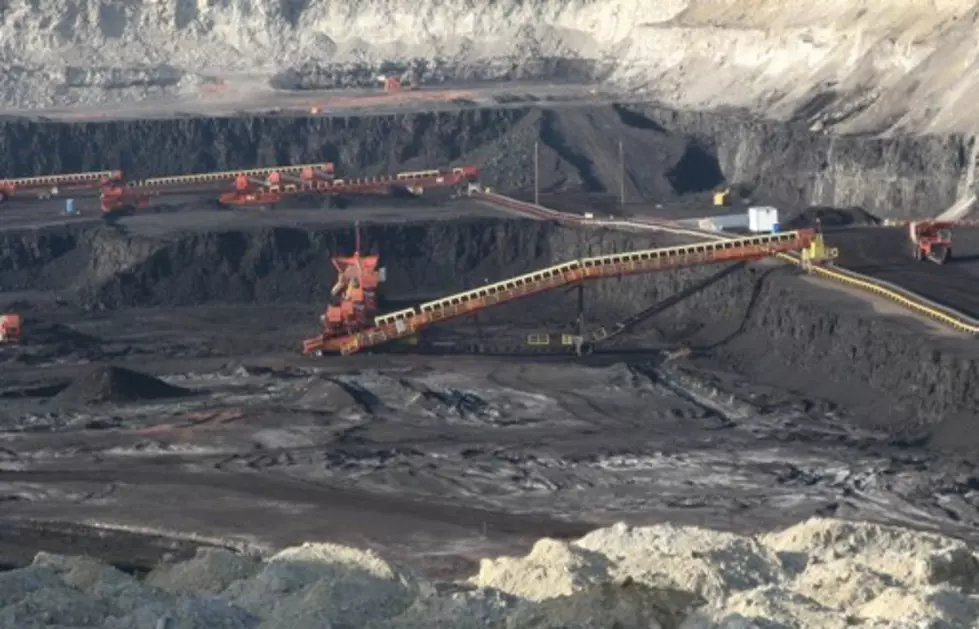
Biden administration to reverse Trump-era coal wastewater rule
WASHINGTON (CN) — In a reversal of a Trump-era policy, the Environmental Protection Agency said Monday that it will roll back lax wastewater pollution rules for coal-fired power plants issued by the former administration, though the change won't be felt any time soon.
The agency said it has officially begun the new rulemaking process for how coal plants treat their wastewater. Waste from such power plants is usually heavy in toxic metals like mercury, arsenic and selenium, to name a few.
Those three metals alone are known to have widespread negative effects on the human brain, nervous system and reproductive system as well as destroy or compromise the natural habitats and marine life they contact.
"EPA is committed to science-based policy decisions to protect our natural resources and public health," EPA Administrator Michael Regan said in a statement Monday.
In Canada this April, coal company Trek Resources Limited was forced to pay $60 million in fines after a Canadian federal court found the company guilty of discharging huge amounts of selenium into the Fording River just north of Montana. Investigators reported that the selenium was causing reproductive damage in fish there.
Under the new proposed EPA rule, coal power plants that use steam to generate electricity will be expected to install equipment that can better treat heavy metals, but the agency's notice is otherwise short on details. It does, however, say the rule will bring the agency in line with an executive order President Joe Biden signed in January.
Less than a day into his first term, Biden directed all federal agencies to review rules issued in the last four years under former President Donald Trump. Specifically, he asked agencies to assess whether those rules are consistent with the new administration’s policy to “listen to science, improve public health and protect the environment, [ensure] access to clean air and water, [limit] exposure to dangerous chemicals and pesticides, [hold] polluters accountable” and reduce greenhouse gases while bolstering climate change resilience.
Just six years ago under former President Barack Obama, the EPA mandated that coal plants give their wastewater treatment systems a major overhaul following reports of harmful disposal methods unfolding at the AES-PR coal plant in Puerto Rico, one of the largest coal ash pile operators in the U.S. at the time.
Amid outcry from locals on the island territory about the toxicity of the plant’s coal ash ponds, the waste was ordered to be transported. But according to a February 2020 investigation by CBS News, the cargo was not going far since it was merely being sent to the nearby United States mainland.
An attempt to dump the ash in the Dominican Republic failed, as did an attempt in Florida. For now, the company dumps its toxic coal ash at a site on Chesser Island, Georgia. Incidentally, AES-PR’s barge of coal ash ran aground in Georgia less than six months ago and leeched almost 10,000 tons of waste into the ocean. It took three weeks for the ship to be dislodged.
In 2017, Trump tossed the Obama-era policy while former coal lobbyist Andrew Wheeler headed the EPA . Wheeler ordered that facilities storing coal ash need only conduct safety assessments when that waste is just 5 feet from floodplains, sinkholes or groundwater supplies. It also exempted construction companies from coal ash volume restrictions altogether.
Though the Biden administration's reversal of Trump's policy is being met with praise by some environmentalist groups, the timeline for the change is less than desirable. While it completes the rulemaking process, the EPA will continue to keep Trump-era waste standards in place wherever it is being challenged in court. The Biden administration rule reversal also wouldn’t take effect until 2024.
Bret Hartl, government affairs director for the Center for Biological Diversity, said in a statement Monday he thinks it would be better to vacate the Trump rule. The group is one of eight major environmental organizations that has sued the EPA for its implementation of the lax wastewater rule.
But Regan said retaining the current policy would translate to “better control of water pollution from power plants while reducing the cost of controls such biological treatment systems and membrane treatment systems.”
“In conducting a review of the 2020 rule as directed by President Biden, EPA determined that moving forward with implementing the existing regulations would ensure that water resources are protected now, while we quickly move to strengthen water quality protections and further reduce power plant pollution that can contain toxic metals such as mercury, arsenic, and selenium,” the EPA administrator said.
Julian Gonzalez, legislative counsel for Earthjustice, said in an email Monday that the Trump administration's changes to the Obama-era rule were "blatantly illegal and unjustifiable," so his organization welcomed the change.
"However, we are concerned because they are not committing to finalizing the rule for another three years or to addressing all of the issues that the Trump administration created with its weakening of the rule. Faster and more effective action is needed to finally address the pollution from this industry because the damage done by the Trump administration will remain in our ecosystems and communities for years,” he said.
